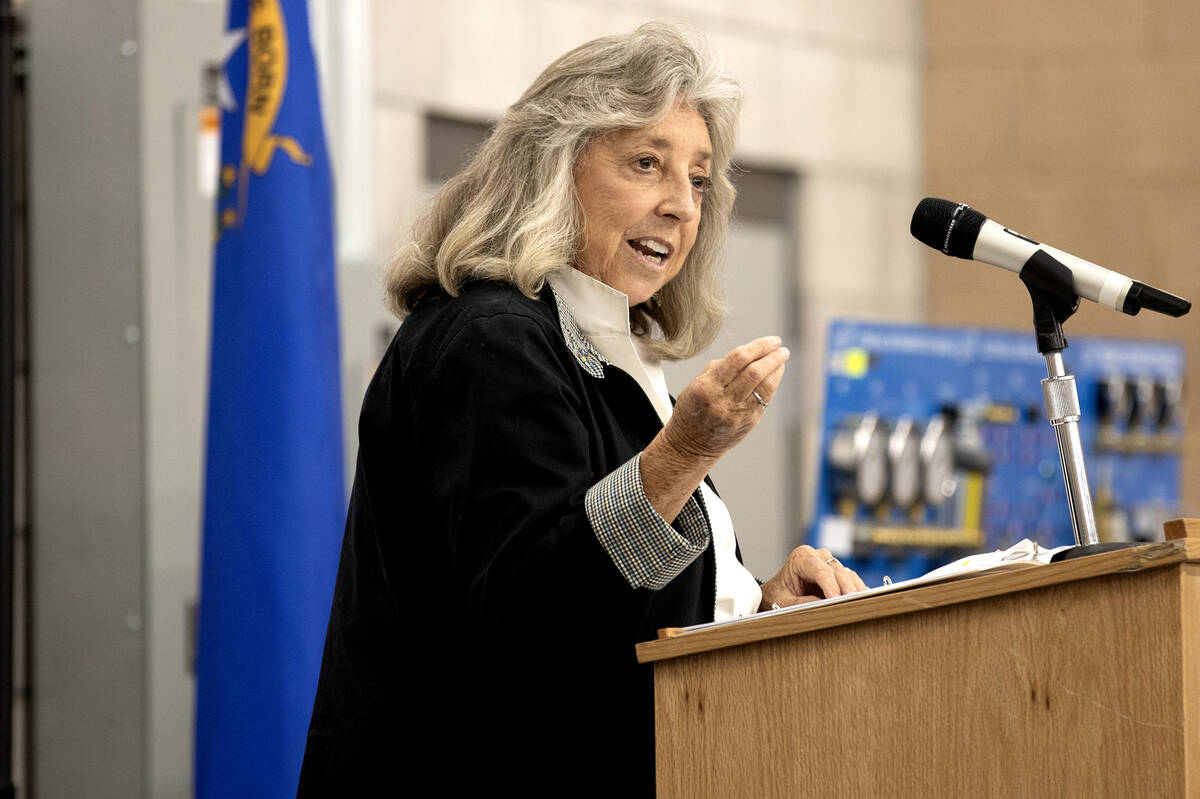What the spending package passed by the House means for Nevada
All four of Nevada’s representatives voted for the $1.2 trillion government funding package that passed by a 286-134 vote Friday, averting a government shutdown.
The budgets, which cover fiscal year 2024, include funding for climate and energy initiatives, support for service members, protections for women’s reproductive rights, aid for border security and investments in education, according to Rep. Dina Titus, D-Nev.
“Although this appropriations package is not perfect, I voted in favor after the removal of the most extreme Republican agenda items and the preservation of key Democratic priorities,” Titus said in a statement. “This package completes the funding of the federal government for fiscal year 2024 and moves one step closer to preventing the possibility of a government shutdown.”
The package must be approved by the Senate before heading to President Joe Biden’s desk for his signature.
Rep. Susie Lee, a member of the House Appropriations Committee, helped advocate for community funding projects specific to Nevada.
“Every day from my seat on the House Appropriations Committee, I have been Southern Nevada’s voice in the room where our nation’s most important funding decisions are made,” Lee said in a statement.
UNLV will receive $4 million toward the purchase of high-performance computing equipment at its National Supercomputing Institute.
The upgrades will help the institute study issues in cybersecurity and develop solutions related to issues in privacy, data analytics and threats to interconnected networks, according to Lee’s office.
Lee also secured $588,572 for a project that will replace and install two emergency generators at fire stations in Bunkerville and Searchlight. The new generators will help volunteer firefighters continue their service in a power interruption, and it will provide enough power for the stations to serve as a refuge during a natural disaster, according to Lee’s office.
Amodei, who chairs the House Appropriations’ legislative branch subcommittee, did not provide a comment Friday, but regarding a previous batch of appropriations that were passed said that the most basic responsibility of Congress is to fund the operation of the federal government.
“I understand this has taken entirely too long, but we’re finally seeing the light at the end of the tunnel,” he said in his newsletter on March 14.
In it, he said the government cannot keep punting its problems down the road, which is why he previously voted in favor of the six appropriations bills considered by the House, including on agriculture, rural development, food and drug administration; commerce, justice and science; energy and water development; interior and environment; military construction and veterans affairs; and transportation, housing and urban development.
Nevada’s Sens. Catherine Cortez Masto and Jacky Rosen also advocated for funding several other projects in Nevada, including $4 million for the secretary of state office’s business online portal, $1.33 million for a small-business incubator for the Winnemucca Indian Colony, $4.39 million for facilities and equipment for the Western Nevada College and $2.8 million for STEM education and career development for the Desert Research Institute.
They also pushed for $2.3 million for the College of Southern Nevada’s nursing simulation lab project, $1.42 million for workforce preparedness training systems for Great Basin College and $938,000 for Nevada State College’s speech-language pathologist educational and training project. Cortez Masto and Rosen also secured funds for mental health and substance abuse programs in Clark County.
Contact Jessica Hill at jehill@reviewjournal.com. Follow @jess_hillyeah on X.






















